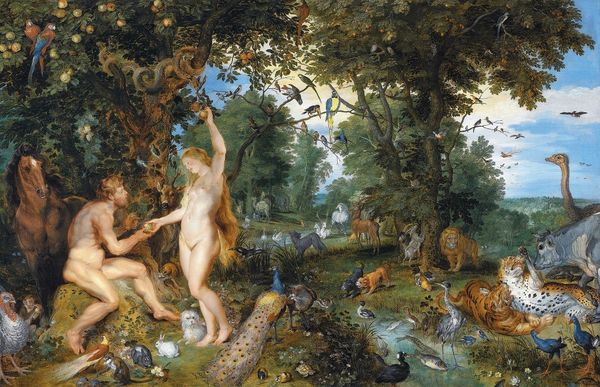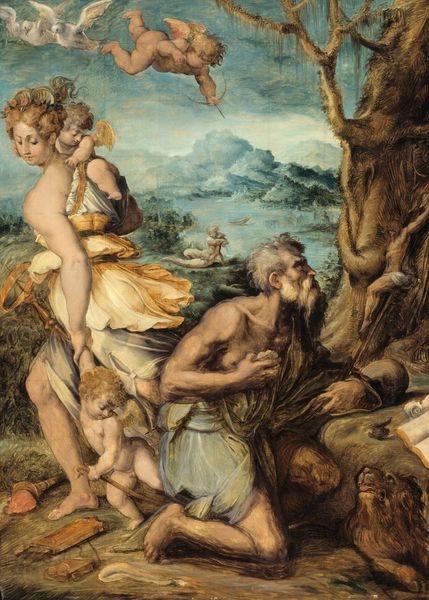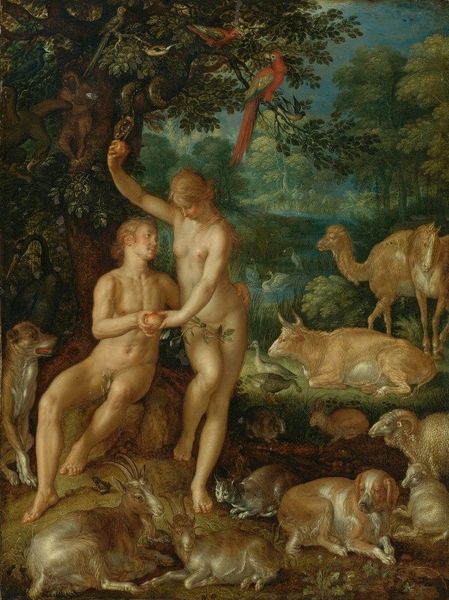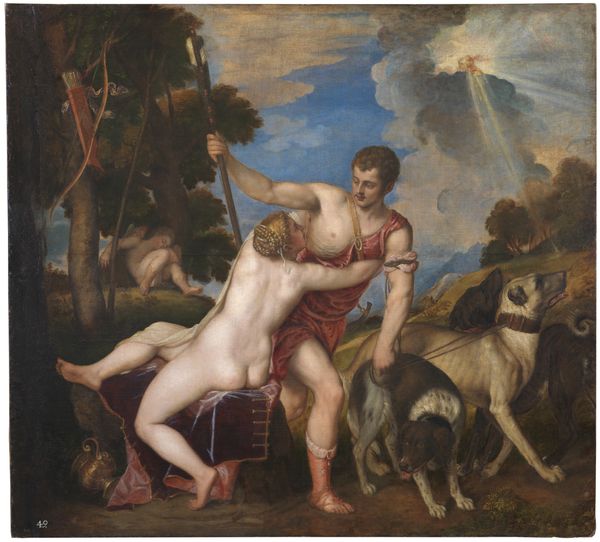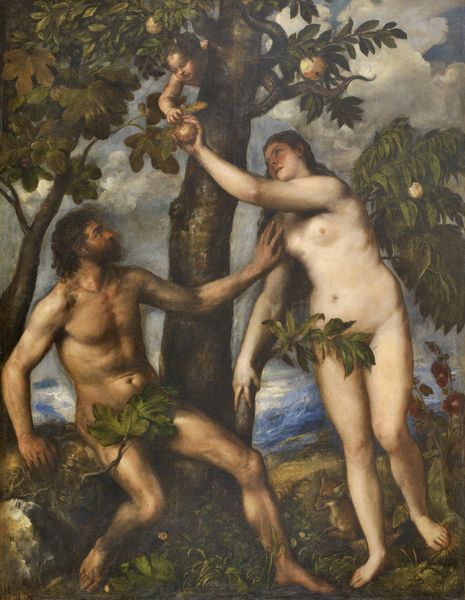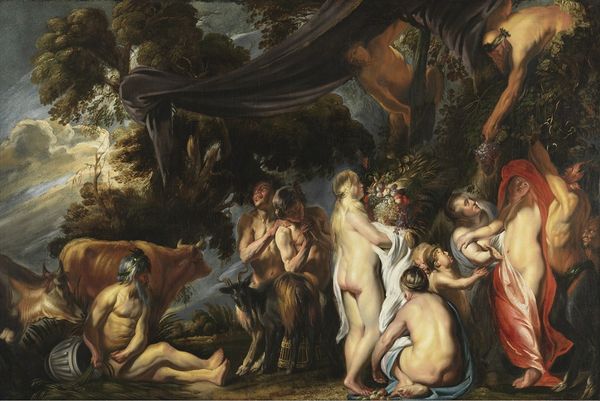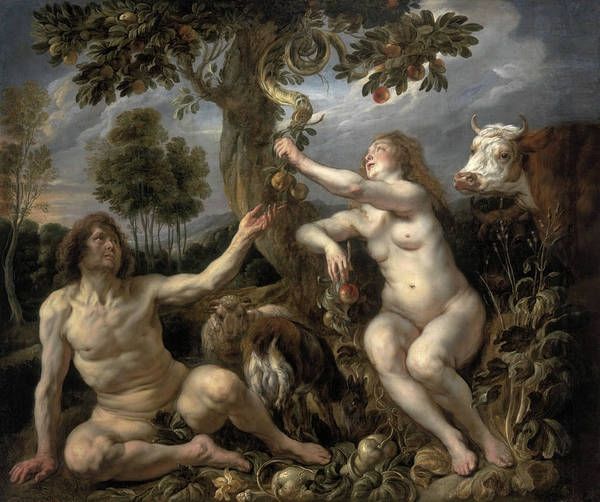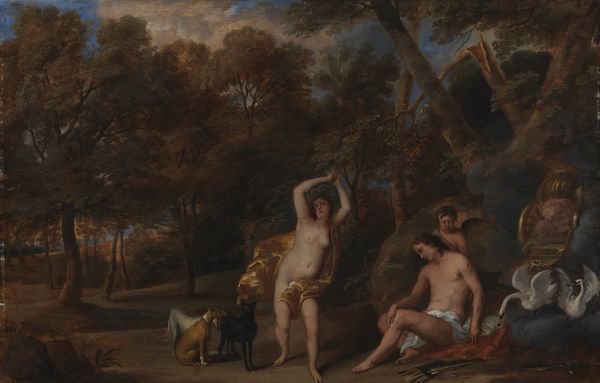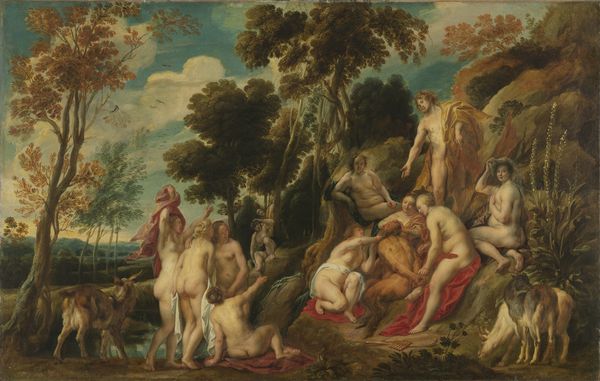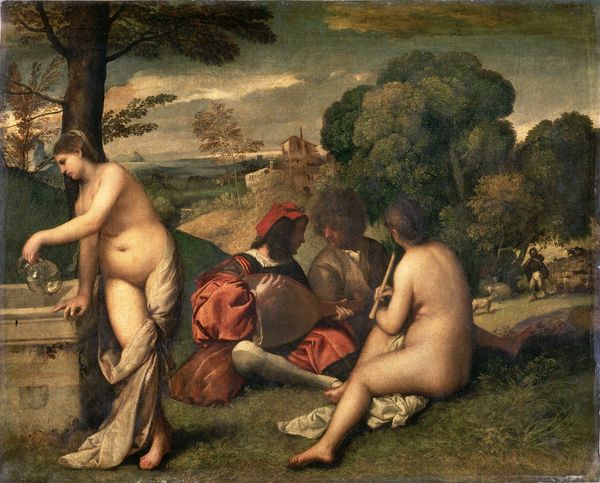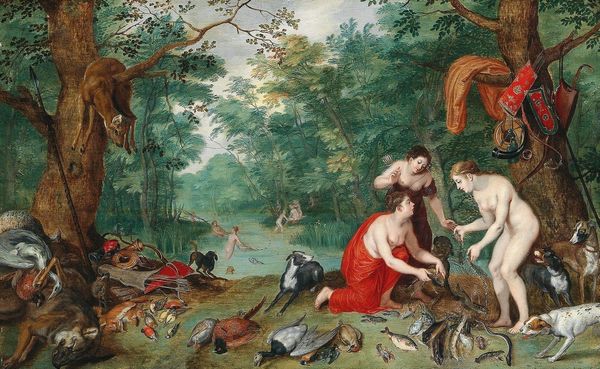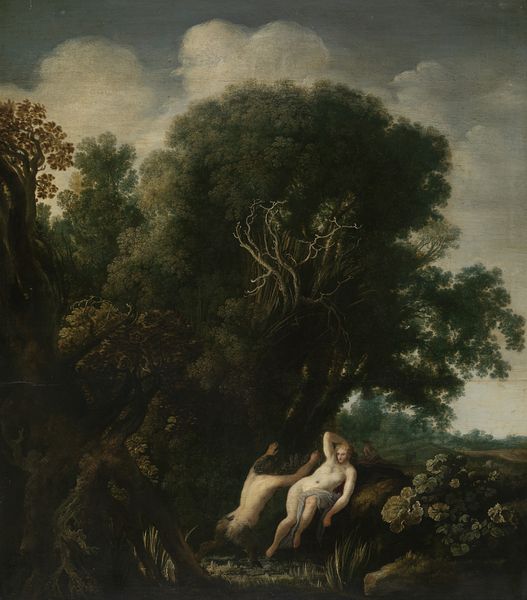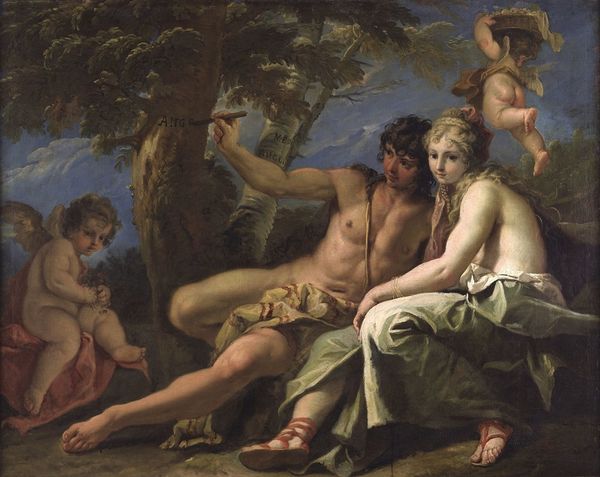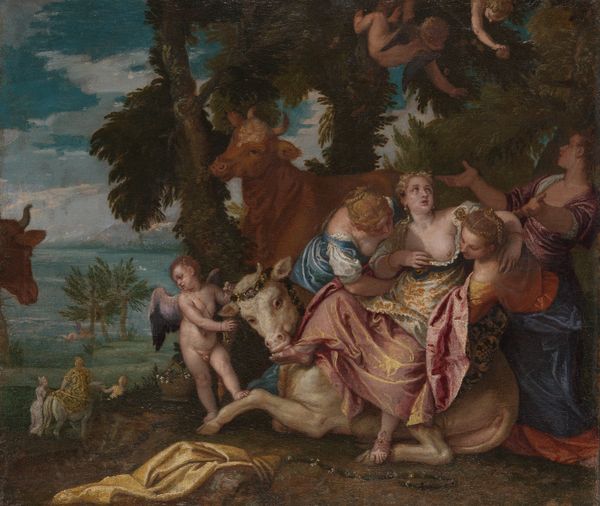
painting, oil-paint
#
allegory
#
painting
#
oil-paint
#
sculpture
#
landscape
#
mannerism
#
oil painting
#
history-painting
#
nude
Copyright: Public domain
Bartholomeus Spranger painted Venus and Adonis, inspired by classical mythology, during the late 16th century. The image depicts Venus attempting to restrain Adonis from going hunting, reflecting a broader cultural interest at this time with themes of love, desire, and mortality. The landscape, peopled with classical figures, evokes an idealised vision of nature, one that invites us to consider the place of humanity within the natural order. Spranger was working in Prague for Emperor Rudolf II, whose court was a center of mannerist art. Courtly life and patronage shaped artistic production. Rudolf was a major collector of art and his patronage system influenced the style and subject matter of paintings. Historical documents, court records, and biographical information about the artist can help us further understand the social conditions that shaped this work of art. Through such research, we can interpret how artistic choices reflect the values, beliefs, and power dynamics of the time.
Comments
rijksmuseum over 2 years ago
⋮
Venus, the goddess of love, did not want her lover Adonis to go hunting. She was afraid that he would come to harm. Her fears were justified: Adonis was killed by a wild boar. The tall, slender figures with small heads typify Spranger’s elegant Mannerist style. The landscape is curiously old-fashioned; it was copied from an early 16th-century painting.
Join the conversation
Join millions of artists and users on Artera today and experience the ultimate creative platform.
